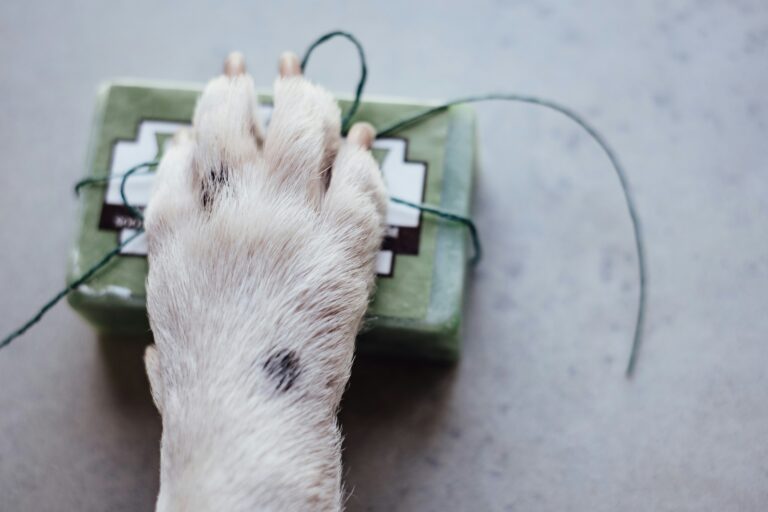Does your small breed dog give you a hard time while trying to take care of their dental health? If yes, then you’re in the right place! In the following sections, we will be unveiling top-notch dental care tips tailored for small breed dogs. Tiny Teeth, Big Care is more than just a phrase; it encapsulates the intricate dental needs of your furry friends that, when attended to, can significantly improve their overall health and happiness.
Small breed dogs are a package of cuteness and joy, but with their tiny size comes specific challenges – one of them being dental care. Unlike their larger counterparts, small dogs are prone to dental issues due to their petite mouth and tightly packed teeth. Therefore, understanding the unique dental requirements of small dogs is crucial for every pet parent.
We will be covering a range of topics, starting from why small breed dogs are more prone to dental diseases, to the best practices for maintaining their oral hygiene. We will delve deep into expert advice, from choosing the right dental products to proper brushing techniques. All this information is geared towards helping you maintain your pet’s tiny teeth in the best possible condition.
Whether you’re a new dog owner or have been one for years, this comprehensive guide will provide you with fresh insights and practical tips on small breed dog dental care. So get ready to make dental care an integral part of your pet’s routine, ensuring they stay healthy and happy. After all, nothing beats the sight of a dog flashing its clean, shiny teeth in a heartwarming, tail-wagging smile! 🐶💖🦷
Understanding the Progression of Dental Disease
Dental disease in small dogs often develops gradually, which makes early detection and consistent prevention vital. In its initial stage, plaque begins to accumulate on the teeth. Plaque is a sticky film of bacteria that forms when food particles remain on the teeth and gums. If not removed through brushing or dental cleaning, plaque hardens into tartar, which adheres strongly to the tooth enamel and below the gumline.
As tartar builds up, it irritates the gums, leading to inflammation known as gingivitis. Gingivitis is characterized by red, swollen gums that may bleed when touched. If untreated, gingivitis can progress into more severe periodontal disease, which involves the degradation of the tissues and bone supporting the teeth.

This stage can result in tooth mobility, gum recession, and even abscesses. Eventually, it can cause tooth loss and chronic pain, making it difficult for the dog to eat or enjoy its food. The longer dental problems go untreated, the more likely they are to affect overall health.
Proper Use of Dental Chews and Toys
Dental chews and toys are effective supplements to daily brushing, especially when used correctly. While they are not a substitute for brushing, they can significantly aid in reducing plaque buildup and promoting healthier gums.
Choosing the Right Dental Chews
Not all dental chews are created equal. When selecting dental chews for your small dog, opt for those approved by the Veterinary Oral Health Council (VOHC), which indicates they meet standards for reducing plaque and tartar.
The Role of Dental Toys
Dental toys serve a dual purpose of entertainment and oral hygiene. Textured toys made of rubber or nylon are ideal for massaging gums and scraping away plaque during play.
Understanding the Link Between Diet and Dental Health
Diet plays a crucial role in maintaining your small dog’s oral health. Certain foods and feeding practices can help support strong teeth and prevent oral diseases.
Dry vs. Wet Food
Dry kibble tends to be better for dental health compared to wet food because the mechanical action of crunching helps reduce plaque buildup.
Dental Diets and Prescription Options
Some pet food manufacturers offer dental-specific diets formulated to clean the teeth through the kibble’s shape and texture.
Hydration and Oral Health
Adequate water intake is critical not just for overall health but also for maintaining a healthy oral environment.
Introducing Tooth Brushing to Your Dog
Tooth brushing is the gold standard of canine dental care, but it requires patience and training to become a comfortable part of your dog’s routine.
Getting Started
Begin by acclimating your dog to having their mouth handled. Always reward calm behavior with treats and praise.
Brushing Technique
Gently lift your dog’s lips and angle the brush to reach the gum line. Use small, circular motions and focus on the outer surfaces of the teeth.
Making Dental Care a Routine
Establishing a daily dental care routine increases your chances of success. Choose a calm time of day when your dog is relaxed.
Recognizing Signs of Dental Trouble
Despite your best efforts, dental issues may still arise. Recognizing early warning signs helps you take action before problems escalate.
Common Symptoms
Watch for signs like bad breath, red or bleeding gums, loose or missing teeth, and difficulty eating.
Behavioral Changes
Changes in behavior can signal dental distress. A dog who becomes withdrawn or irritable may be experiencing discomfort.
Oral Tumors and Growths
Regular home checks allow you to spot unusual lumps or growths inside your dog’s mouth that could indicate a serious condition.
Integrating Professional Dental Cleanings
Professional dental cleanings performed by a veterinarian are an important part of comprehensive oral care.
Why Professional Cleanings Are Necessary
Even with regular brushing, plaque and tartar can accumulate below the gum line where brushes can’t reach.
Understanding the Procedure
Dental cleanings are typically performed under anesthesia to allow a complete and stress-free cleaning.
Frequency of Professional Cleanings
Most small dogs benefit from annual cleanings, but those with a history of dental disease may require them more often.
Genetics and Dental Predispositions
Certain small dog breeds are genetically predisposed to dental issues, making proactive care even more critical.
Breeds at Higher Risk
Breeds such as Chihuahuas, Pomeranians, Toy Poodles, and Yorkshire Terriers often experience dental challenges.
Tailoring Care to Breed Needs
Understanding your dog’s breed-specific risks allows you to tailor their dental routine accordingly.
The Importance of Early Intervention
Addressing dental concerns early prevents the need for extensive treatments down the road.
Benefits of Early Care
Preventive care reduces the risk of costly procedures like extractions or gum surgery.
Building a Lifetime Routine
Small dogs live long lives, and investing in their dental health from puppyhood through senior years pays off in quality of life.
The Role of Nutrition in Oral Health
Diet plays a fundamental role in maintaining your small dog’s dental hygiene. A nutritious and balanced diet supports not only general well-being but also contributes to healthier teeth and gums. Dogs that consume poor-quality food are more prone to dental diseases such as plaque buildup and gingivitis, which, if left untreated, may result in more severe systemic issues.
Choose the Right Type of Food
One of the first considerations in promoting oral health through diet is selecting the right type of food. Dry kibble is typically preferred over wet food when it comes to dental health. The texture of dry kibble helps in mechanically removing plaque from the surface of the teeth as the dog chews. It acts like a mild abrasive, reducing the accumulation of tartar.
Some dog food formulas are specifically designed with dental health in mind. These diets contain ingredients that help control bacteria in the mouth or are shaped in a way that encourages chewing. Brands with a seal of approval from veterinary dental associations are generally a safer choice, as they have been clinically tested for efficacy.
Read Ingredient Labels Carefully
Understanding what goes into your dog’s food is crucial. Look for high-quality proteins listed as the first ingredient. Avoid foods that contain excessive fillers, artificial preservatives, or sugars, as these can contribute to plaque formation. Whole grains, vegetables, and fruits are good additions, providing essential vitamins and minerals for strong teeth and gums.
Certain minerals like calcium and phosphorus are essential for maintaining tooth integrity. Additionally, foods enriched with antioxidants can support immune health, which indirectly helps in fighting oral bacteria.
Incorporate Dental Treats into the Routine
Dental treats are a fantastic complement to your dog’s oral hygiene regimen. They are formulated to reduce plaque and tartar buildup, freshen breath, and often include ingredients that support gum health. However, not all treats are created equal. Choose treats that are appropriately sized for your small breed dog and do not contain excessive calories or unhealthy additives.
Crunchy treats tend to be more effective than soft ones because they provide the mechanical action needed to clean the teeth. Treats that have a rough texture or grooves are especially beneficial as they reach different parts of the teeth and help scrub away debris.

Consider Prescription Dental Diets
In cases where your dog is particularly prone to dental issues, your veterinarian may recommend a prescription dental diet. These diets are specifically engineered to reduce plaque and tartar, with larger kibble sizes and a fiber matrix that encourages a scraping action while chewing. Some even contain antibacterial agents or enzymes that help break down plaque chemically.
Supplements That Support Dental Health
Nutritional supplements can also be used to support your dog’s oral health. Products containing enzymes like glucose oxidase and lactoperoxidase help control oral bacteria. Additionally, seaweed-based supplements, such as those containing Ascophyllum nodosum, have shown promise in reducing plaque accumulation when added to a dog’s food daily.
Before introducing any new supplement into your dog’s diet, consult your veterinarian to ensure it is appropriate for their age, breed, and health condition.
Avoid Foods That Harm Dental Health
Just as some foods promote dental health, others can be detrimental. Avoid giving your small dog sticky, sugary treats or table scraps, which can adhere to the teeth and contribute to plaque buildup. Human foods like candy, pastries, or bones from cooked meat should also be avoided as they can lead to tooth fractures or digestive issues.
Additionally, rawhide chews, although popular, can be problematic for small breed dogs as they may be difficult to digest and pose a choking hazard. If you do offer rawhide, ensure it is size-appropriate and always supervise your dog while they are chewing.
Encourage Hydration for Oral Cleanliness
Water plays a critical role in oral hygiene. It helps rinse away food particles and bacteria from your dog’s mouth. Ensure your small dog always has access to fresh, clean water. Some pet owners add water additives designed to fight plaque and freshen breath, but these should be used under veterinary guidance.
If your dog resists drinking from a bowl, try using a pet water fountain. These devices encourage hydration by providing a continuous flow of fresh water, which many dogs find more appealing.
Establish a Feeding Schedule
Free feeding, where food is left out all day, can lead to more frequent acid attacks in the mouth, promoting tooth decay. Instead, feeding your dog at set times during the day reduces the chances of food lingering in the mouth and increases the likelihood that saliva can effectively neutralize oral acids between meals.
Establish a routine that includes a dental treat or chew after their main meal. This helps clean their teeth post-feeding and can become an enjoyable reward that reinforces positive associations with dental care.
Combine Diet with Other Dental Care Practices
Although diet is a powerful tool in maintaining dental health, it should be combined with other practices like regular brushing, professional cleanings, and oral exams. No food or treat can replace the mechanical removal of plaque that comes with brushing. Use food and treats as part of a broader oral hygiene plan rather than as a replacement for brushing.
Integrating these elements ensures a well-rounded approach to your small dog’s dental health and helps in the early detection and prevention of potentially serious oral conditions.
Training Your Dog for Dental Care
Training your dog to accept dental care can be a challenging but rewarding task. By training your dog to accept brushing and other forms of dental care, you can greatly improve their oral health.
Start Training Early
It’s best to start training your dog for dental care when they’re still a puppy. This makes it easier for them to accept these practices as part of their routine.
Take it Slow
When introducing new dental care practices, it’s important to take it slow and be patient. Start by letting your dog get used to having their mouth touched, and gradually introduce brushing and other practices.
In conclusion, while small breed dogs face unique dental challenges, with proper care and attention, you can keep your dog’s teeth healthy and strong. From regular check-ups to daily brushing, each aspect of dental care plays a vital role in your small breed dog’s overall health.
Conclusion
In conclusion, prioritizing dental health in small breed dogs through “Tiny Teeth, Big Care” is crucial to their overall wellbeing. Regular brushing, using dental treats and toys, providing a balanced diet, and scheduling routine dental check-ups with your vet, are all effective strategies to ensure their oral hygiene. Remember, small breed dogs are more prone to dental diseases due to their mouth structure. Hence, prevention is better than cure. Moreover, proper dental care prevents severe complications like tooth loss, infections, and diseases in other organs. It also reduces bad breath, making your interactions with your pet more enjoyable. It’s essential to note that dental care begins at home, but professional help should not be overlooked. Start early, be consistent, and you will contribute significantly to your small breed dog’s happy, healthy life. Taking care of their tiny teeth indeed requires big care, but it’s all worth it in the end, when you have a healthy, happy pooch by your side.



